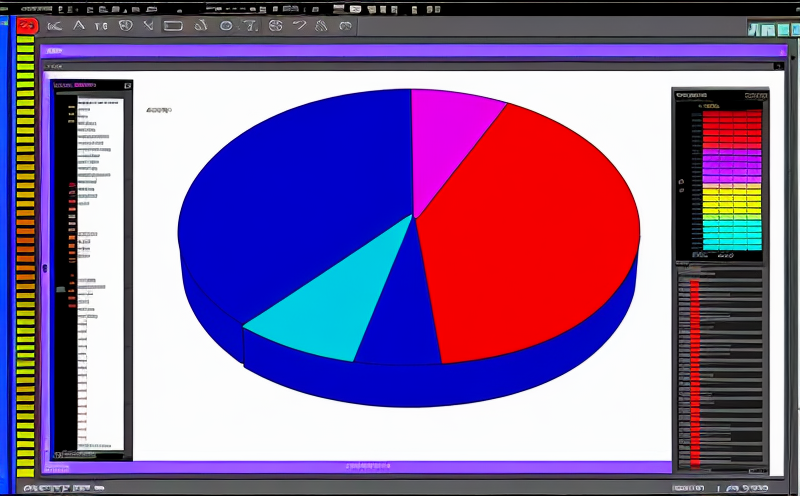CFR 21 Thermal Analysis of Food and Drug Substances
The Code of Federal Regulations (CFR) Title 21 provides critical guidelines on the safety, quality, and proper labeling of foods, drugs, and other products intended for human use. Within this framework, thermal analysis plays a pivotal role in ensuring compliance with these regulations by evaluating the stability, purity, and behavior of food and drug substances under various temperature conditions.
Thermal analysis techniques such as Differential Scanning Calorimetry (DSC) and Thermogravimetric Analysis (TGA) are instrumental in assessing the thermal properties of materials. These methods help in identifying phase transitions, decomposition temperatures, melting points, and weight loss behavior. For pharmaceuticals and food products, understanding these parameters is crucial for ensuring product safety and efficacy.
The primary goal of CFR 21 compliance through thermal analysis is to provide a robust scientific basis for the stability testing required by regulatory bodies. This ensures that the products meet not only chemical but also physical requirements under real-world conditions. By performing precise and accurate thermal analysis, we can determine the optimal storage temperature ranges for food items or validate drug formulations against degradation risks.
At Eurolab, our team of experts uses state-of-the-art equipment to conduct these analyses in accordance with international standards such as ASTM E1246. Our facilities are equipped with high-precision calorimeters and gravimetric systems that ensure accurate measurement of thermal events. These tools enable us to simulate the environmental conditions that food and drug products might encounter during manufacturing, transportation, storage, and use.
Our approach begins with thorough preparation of the samples according to industry best practices. This includes ensuring uniformity across batches, controlling moisture content, and selecting appropriate sample sizes based on expected behavior. Once prepared, the samples undergo rigorous testing using DSC for assessing thermal transitions like melting points or glass transition temperatures, while TGA helps in quantifying volatile components lost during heating.
The data collected from these analyses is then meticulously analyzed to establish the most suitable storage and handling conditions for each substance. This information can be used by manufacturers to optimize production processes, improve shelf life, enhance safety profiles, or simply meet stringent regulatory requirements set forth in CFR 21 Part 113 (Food Standards) or Part 210/211 (Current Good Manufacturing Practice).
By adhering strictly to established protocols and leveraging advanced technology, Eurolab ensures that all thermal analyses conducted on behalf of our clients are both reliable and repeatable. This approach not only supports compliance with federal regulations but also fosters innovation within the food and pharmaceutical industries by providing valuable insights into material behaviors.
Applied Standards
- ASTM E1246 Standard Practice for Thermal Analysis of Polymers
- ASTM D3418 Standard Test Method for Determination of Glass Transition Temperature by Differential Scanning Calorimetry (DSC)
- ASTM E927 Standard Test Method for Determination of Melting Point by Differential Scanning Calorimetry
- ASTM D5690 Standard Practice for Thermogravimetric Analysis (TGA) of Polymers and Related Materials
- ISO 11357-2:2015 Thermal analysis - Differential scanning calorimetry of plastics - Part 2: Determination of glass transition temperature, melting point and enthalpy changes
Industry Applications
- Pharmaceutical Industry: Evaluating drug stability under varying temperatures to ensure long-term efficacy.
- Bakery and Confectionery: Assessing how different ingredients interact at various stages of baking or processing.
- Cosmetics and Personal Care: Determining ingredient compatibility during formulation development.
- Agricultural Products: Analyzing pesticide breakdown rates to ensure safe residue levels after application.
Eurolab Advantages
At Eurolab, we pride ourselves on offering comprehensive thermal analysis services tailored specifically for the unique needs of pharmaceutical and food industries. Our experienced team leverages cutting-edge technology to provide precise and reliable results every time.
- Expertise: Our specialists have extensive experience in applying thermal analysis techniques across diverse applications within these sectors.
- Precision: Utilizing high-precision instruments ensures accurate measurements, which are essential for meeting strict regulatory standards.
- Comprehensive Solutions: From sample preparation to final reporting, we cover all aspects of thermal analysis required by our clients.
- Regulatory Compliance: Our services align perfectly with relevant international standards, ensuring that your products meet all necessary requirements.





